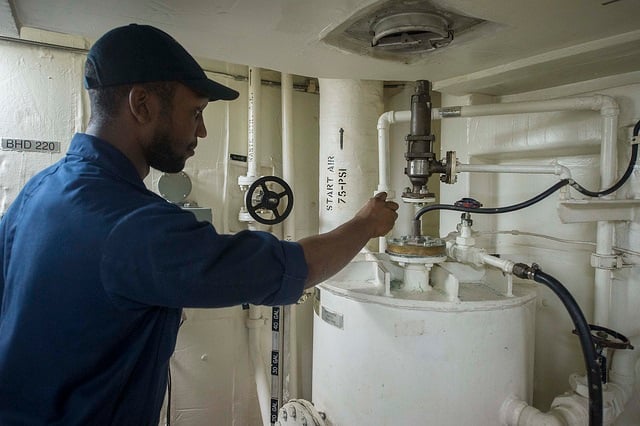Updated December 2024
Gas technicians (or gas fitters) work in residential, commercial, and industrial settings. They're employed by construction companies, HVAC or gas-servicing firms, and utilities companies—or may even be self-employed.
Gas tech work is challenging, offers a variety of tasks, and will definitely stretch your problem-solving skills. Considering this trades career, but need more information on what the job is like, and the training you'll need to get started?
Read on for a detailed look at what a gas technician does, what the Ontario job market is currently like, and what you need for TSSA certification.
Typical Gas Technician Tasks & Responsibilities
It's important to know that your duties, job options, and salary as a gas technician will depend on the level of licensing you hold. For example, technicians with G3 certification are not legally allowed to work on gas-fired appliances without supervision.
If you have a G2 license, you are authorized to supervise G3 techs, and work independently on natural gas or propane appliances with an input of 400,000 BTUH or less.
G1 is the highest level of certification, and allows technicians to work unsupervised on systems with a firing rate of more than 400,000 BTUs.
So, obviously, the specific work you do as a gas technician will vary somewhat depending on your level of experience and licensing.
That being said, there are core responsibilities that come along with almost every gas tech job. These are fundamental tasks you can expect to perform regularly, such as:
- Installing, repairing, and maintaining gas meters, regulators, gas lines, and gas appliances
- Testing for gas leaks
- Working on boilers, ovens, gas fireplaces, gas-fired refrigerators, hydronic heating systems, etc.
- Installing and connecting appliances to gas, water, and electrical supplies
- Retrofitting
- Testing and replacing defective equipment or components
- Attending to gas escape calls and assisting in the investigation of gas fires and explosions
- Educating clients on safety features and maintenance of gas units and systems
Challenges of Working as a Gas Technician
What are some common challenges you'll face as a gas technician? Typical "cons" of the job include:
- The work can be seasonal (however, according to the Government of Canada Job Bank, 63 per cent of gas fitters in Ontario work year-round, while only 37 per cent work seasonally)
- Some positions require "on call" and weekend work schedules
- Work can be physically demanding (long periods of standing, bending, crouching, kneeling, or working in confined spaces)
- Job sites are often noisy
Career Outlook for Gas Technicians in Ontario
On the plus side, the latest job outlook report from the Government of Canada shows good demand for gas techs in Ontario.
The Job Bank awarded "gas technician" four out of five stars for employment potential in most areas of the province. In the GTA, 66 per cent of technicians are currently working in construction, while another 18 per cent are employed by utilities companies.
New residential and commercial development is driving demand for gas techs, along with retrofit work to meet new standards for energy efficiency.
Gas Technician Training & Certification
You cannot legally work as a gas technician in Ontario without first getting certified by the TSSA (Technical Standards and Safety Authority). You'll need to fulfill their training requirements and pass their exams, beginning with the G3 exam.
Quality gas technician training is based on the strict requirements laid out by the TSSA. After completing the approved courses at your local trade school, you'll be ready to challenge the exams.
Newcomers to the field with little or no experience should begin with G3 certification. The G2 licence builds on the principles and hands-on skills taught in level 3, preparing students to work independently as gas technicians.
It takes approximately 480 hours of class time to prepare for the G2 exam.
Interested in learning more about earning your G3 or G2 gas technician certification? Looking for top-rated gas technician training in Toronto?
Your next step is to speak with admissions. An admissions advisor will guide you through our gas technician programs, costs, financial aid, how to apply, and more.
Chat live with an advisor now. Or click below to explore the programs in more detail. We're here to help!






